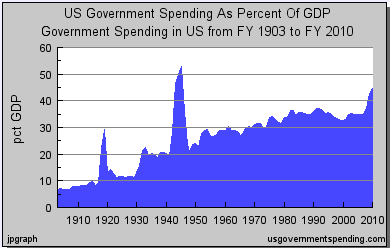To use William F. Buckley’s famous line, the role of the conservative in society is to “stand athwart history yelling Stop!”
So let’s see how that’s working out. Conservatives fought to maintain slavery, they fought against women’s suffrage, and against birth control and abortion. They fought against social programs such as Social Security and Medicare — programs that are now considered to be “the third rail of American’ politics” because any politician who touches them dies. They fought civil rights, today they’re fighting gay rights and the expansion of the health care safety net. They fought public education, water fluoridation, pornography, shopping on Sunday … the list could go on.
There is always a conservative segment of the population that resists change of any kind. That perspective makes sense if you think we’re living in a fallen world and heading toward Armageddon. That things are getting worse is literally a religious belief.
And yet things gets better. Over time, people work together to create happier, more secure and prosperous lives. One of the ways we do that is through public sector programs, or the government. Today overall government spending is up both in real terms and in percentage terms. Here’s a graph of the trajectory:
Government spending is now over 40% of GDP, still substantially below the European “welfare states” which are closer to 50%. Today more people get food stamps, government backed mortgages and student loans than ever before. Regulatory staffing is up 14% since 2008, according the the Regulatory Studies Center at George Washington University.
I’m not saying that growth of government is always good, but my guess is that it’ll grow proportionally faster for a while. The role of the private sector is to create wealth and the role of the public sector is to create security. We need both, and we need them to be in contention, which keeps both sides checked and honest. But make no mistake about the long-term trajectory: conservatives wins battles and progress wins the war.







Hey Jeff,
I don’t see the benefit of couching this as a win/lose proposition. Am I missing something?
From one perspective, of course, the liberals win some fights and the conservatives win others in the short term. And over the long term, the goal posts move and ideas that were once liberal become conservative, as Pinker points out. I hear plenty of current “liberals” loudly lamenting the conservative “victories” while living in a world where the single superpower behaves in ways that would have been considered unthinkably liberal a century ago. I think you are right to point out this progress, and you and I have talked about it before.
However, I believe that focusing on the winning and losing, while it might feel good, is detrimental to the conversation as a whole and actually inhibits the movement of the goal posts. The stridency of the far right, in my opinion, comes not from an inherent aspect of the position (the same positions were held calmly and coolly by wide swaths of the population 50 years ago). It comes from the conscious or unconscious realization that society is moving on and the perception of that movement as “losing”.
I believe that when people on either side crow about “winning” it inflames the “losers”, deepens polarization, and makes moderate positions harder to hold for the people in the middle. As we see in all the rhetoric about “smug, coastal elites” or “bible thumping bigots” this does not typically lead to understanding, compromise. or reconciliation.
If your goal is to “defeat” the conservatives and drive them from the field, this sort of language can be great for pumping up the team. But — especially given that we both know the tsunami of progress is coming whether we like it or not — couldn’t we do more good by promoting understanding and sympathy for people who’s way of life is being drained away rather than rubbing their noses in it?
Much love,
Charlie